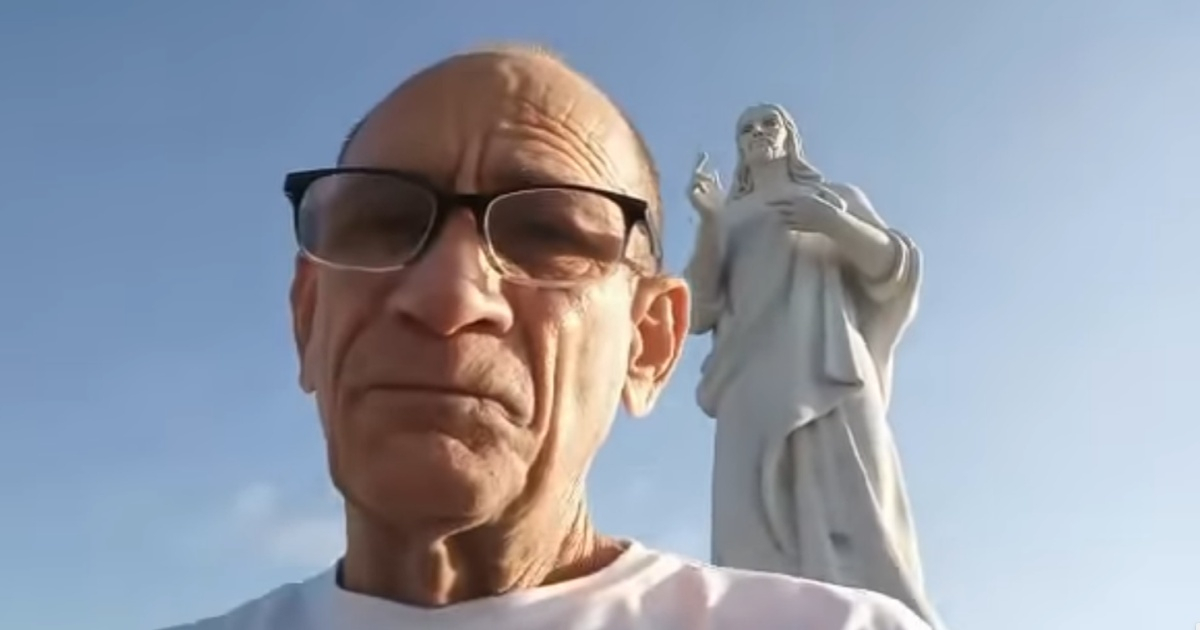
Amnesty International (AI) declared Cuban professor and political activist Pedro Albert Sánchez a prisoner of conscience, and urged President Miguel Díaz-Canel Bermúdez to release him "immediately and unconditionally."
The non-governmental organization made public the decision this Monday, on the eve of the third anniversary of the historic demonstrations of July 11 and 12, 2021 in Cuba. In this context, they also issued a statement demanding the regime to "release all individuals unjustly imprisoned solely for exercising their rights to freedom of expression and peaceful assembly."
Among the Cubans arbitrarily detained, Amnesty mentioned the prisoners of conscience José Daniel Ferrer García, opposition leader; the artists Luis Manuel Otero Alcántara and Maykel Osorbo; and the Yoruba priests Loreto Hernández García and Donaida Pérez Paseiro.
The statement recalled that Professor Albert, 68 years old, is known for his criticism of the Cuban regime and his defense of freedom of expression and peaceful assembly. Since 2020, he has been detained on multiple occasions for participating in peaceful protests and expressing dissenting opinions.
For his participation in the demonstrations on July 11, he was accused of committing the crimes of "contempt" and "public disorder", for which the regime sentenced him to five years in prison.
Amnesty International denounced that, since November 2023, the professor has been in prison under "harsh conditions that have further deteriorated his health, as he suffers from cancer and other illnesses", therefore, on July 7, they issued an urgent action, urging people worldwide to demand the immediate and unconditional release of the Cuban government.
The statement also warns that the Cuban government must cease the systematic repression against activists, artists, family members of individuals imprisoned for political reasons, intellectuals, and journalists, and as part of this, "repeal the articles of the Penal Code that criminalize dissent and violate the right to freedom of expression."
Ana Piquer, Director for the Americas of Amnesty International, called "unacceptable" that the Cuban authorities continue to "use repressive tactics to silence those who dare to speak up in defense of their human rights. This constant repression to try to suffocate any form of dissent must stop once and for all."
The NGO stated that the human rights situation in Cuba continues to deteriorate, with an increase in repression and the criminalization of dissent, and pointed out that, since the regime implemented new legal provisions in 2022, including the Penal Code, "an improper use of these has been documented to persecute people who demand or try to freely exercise their rights."
He denounced among the systematic practices of the authorities the use of "repression tactics that include criminalization, arbitrary detentions, de facto house arrests, and harassment, summons, and administrative sanctions against activists, journalists, and human rights defenders, as well as internet shutdowns in locations where spontaneous protests are taking place."
Considered one of the most notorious cases is that of Ferrer, who has been subjected to solitary confinement on multiple occasions since August 2021, with prolonged periods under an isolation regimen since March 17, 2023, while he has been repeatedly denied the right to receive visits from his family.
Amnesty International also denounced the human rights violations of the young Mayelín Rodríguez Prado, the activist Wilber Aguilar Bravo, the musician Gorki Águila, the journalist Yuri Valle Roca, and the historians Alina Bárbara López and Jenny Pantoja, whom it called "examples of a systematic pattern of repression in Cuba, where freedom of expression and peaceful assembly are severely restricted."
Johanna Cilano Pelaez, regional researcher for the Caribbean of the organization, stressed that "the number of individuals unjustly imprisoned and repressed for political reasons demonstrate the urgent need to dismantle the policies and legal framework that facilitate repression in Cuba".
Many of these individuals remain behind bars solely for exercising their right to freedom of expression. Their immediate and unconditional release and respect for their right to dissent are essential to guarantee human rights in the country," warned.
Amnesty pointed out that, in the last three years, organizations such as Justicia 11J, Prisoners Defenders, and the Cuban Observatory of Human Rights have registered between 963 and 1,113 people detained for political reasons in Cuba. Of them, at least 671 remain imprisoned for their participation in the popular outbreak of 11J.
"The protests in Cuba, driven by a persistent economic crisis, lack of access to basic services, and demands for freedom and rights have been met with a sophisticated repressive machinery,” stated the NGO, while calling on the Díaz-Canel regime to respect the right to peaceful protest, end the repression against dissenters, and release those unjustly imprisoned solely for demanding human rights."
What do you think?
COMMENTFiled under: